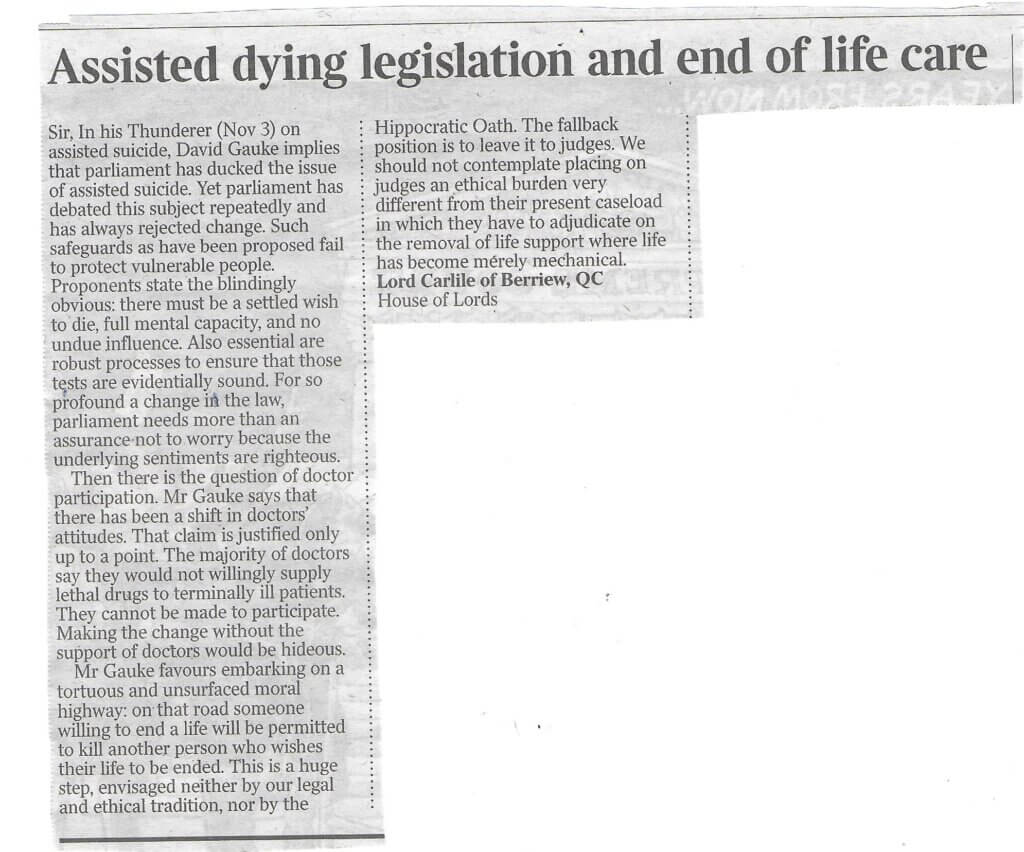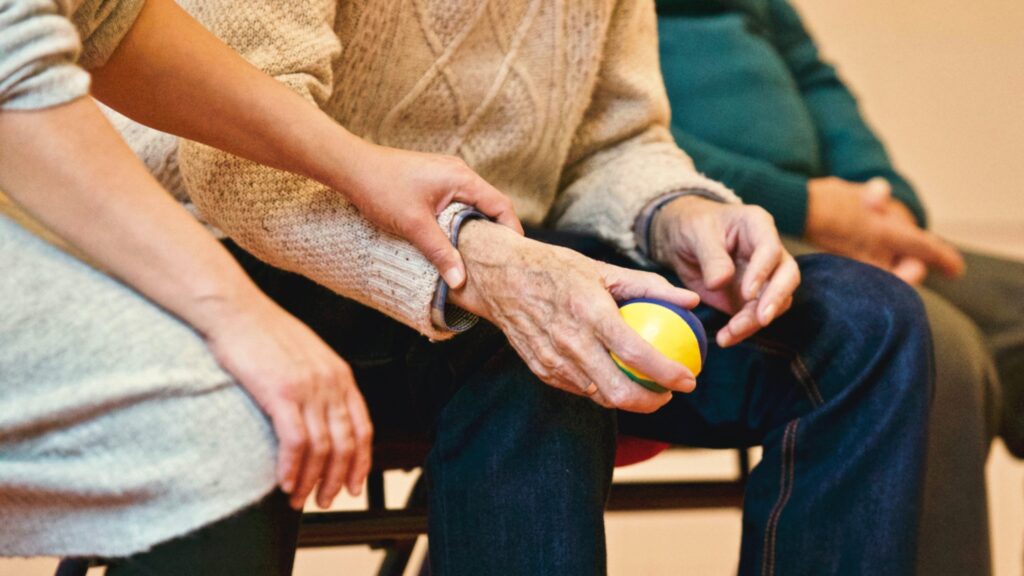

Letters to The Times from a leading U.K. lawyer and leading authorities on palliative care – along with a view from the hospices – outlining why it would put vulnerable people at risk to legalise euthanasia/assisted dying
GOOD PALLIATIVE CARE
Sir, Judith Magill (letter, Nov 4) perpetuates the myth that “assisted dying” is needed to avoid dying in pain. It is worth looking at Oregon, where these practices have been legalised: top of the list of reasons that people seek fatal drugs is being “less able to engage in activities making life enjoyable”. Pain, or fear of it, is far down the list, which is hardly surprising because with modern analgesia pain is much easier to control than once it was. It is totally understandable that people may sometimes feel frustrated by the restrictions that terminal illness can sometimes bring but that does not justify such a major change to the law and to the practice of medicine. It is high time that the argument that “assisted dying” is necessary to avoid a painful death is exposed as a fallacy.
Dr Carol L Davis
Lead consultant in palliative medicine, Southampton
Baroness Finlay of Llandaff
Professor of palliative medicine, Cardiff
Sir, As a trustee of an outstanding hospice, writing in a personal capacity, I reject the suggestion that hospices should offer assisted dying. In my time with the hospice I have seen what great work can be done to help terminally ill people make the best of the life they have left. “Turn left for help, turn right to die today” would completely undermine the ethos of the hospice movement. I am a supporter in principle of assisted dying, but not in a hospice.
Peter West
London SW20



